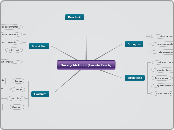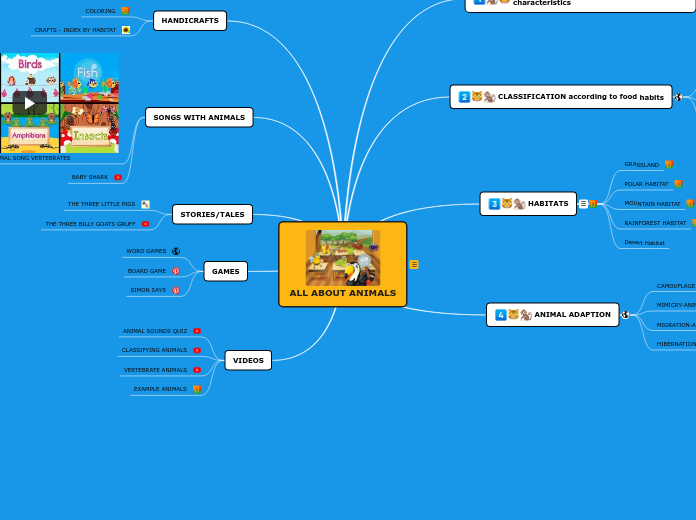Critical of Callois' categories
Callois overestimated the limitations of rules
It is hard to justify the individual categories.
Games
Sociology of play
Roger Caillois - Man,
Play, and Games
All games exist on a continuum
Ludus (formal, rule-based game behavior)
Paidia (playfulness)
A game consists of several qualities of play
Stressed four essential qualities of play
Ilinx (vertigo)
Mimicry (imitation)
Alea (chance)
Agôn (competition)
Culture
Johan Huizing - Homo Ludens
The Magic Circle doesn't affect the real world.
Play occurs within the boundaries of this space and time.
Magic Circle is a special place in time and space created by a game
The concept of Magic Circle
Jesper
Juul
Games are composed of 3 layers
Social context
Experience
Goal orientation
The concept of Magic Circle is misunderstood.
Critics of the Magic Circle
Games affect the real world
Actions in games extend into the real world.
Games influence our behavior.
Games are communication media.
Games impact our moods.
Time has to be allocated to games.
Mia Consalvo
Other factors such as social contexts are important.
Games shouldn't be considered as simply rule-based activities.
Thomas Malaby
A game is a continuous process that can create new meanings and practices.
Games are more than mere objects.
Edward Castronova
No philosophical argument to substantiate the concept of Magic Circle
Crucial to keep the game and real worlds separated
No attempt to define games
Emphasis on the status of play in cultures
Marshall McLuhan -Understanding Media
No empirical data to back up the idea of “catharsis”.
Superficial way of addressing problems
Games are an outlet for tension.
Game forms are shaped by culture.
Brian Sutton-Smith
A wide range of forms in games such as social, physical and theoretical games
Games are finite, fixed and goal-oriented.
Games reflect a society's political and social development.
However, games are not necessarily ingrained in every culture.
The omnipresence of games in many cultures
Henry Jenkins
Player control and the player's ability to influence the game are important features.
The design and aesthetics of the game
are vital to its success.
He argues against social prejudice directed at video games
His work was inspired by Gilbert Seldes' book.
Games represent a new form of popular art
Communication
Gregory Bateson
Meta-communication
Alternate reality games
Blur the line between traditional game worlds(fiction) and the real world (reality)
Explains how information in games is meant to be interpreted
Nonverbal cues that carry meanings
The process of the genesis of the self through social activity
George Herbert Mead - Mind, Self, and Society
Make-believe
Children take on different roles they observe in society.
Social activity relies on communication
Symbols are used to
exchange ideas with each other through play and games.
A shared system of symbols
Children develops the concept of self by mastering human social activity.
Definitions
Formal definition
Jesper Juul
Classic game model
Some video games don't satisfy all the criteria of the classic definition of a game.
Not games -outside the classical model
Non-negotiated
consequences
No attachment
Fixed outcome
Variable rules
Borderline
cases
Pre-negotiated
consequences
No player effort
No valorization
of outcome
Flexible rules
Games - classic criteria
Negotiable
consequences
Player
attachment to
outcome
Player
effort
Valorization of
outcome
Variable
outcome
Fixed rules
Katie Salen and Eric
Zimmerman
There should be a quantifiable outcome.
A game has al least one conflict that challenges the player's skills and intellect.
A game has rules.
Chris Crawford
Games have 4 common elements
Safety
Games might have some direct impact on the real world.
Conflict
Interaction
Representation
First one to define video games
Bernard Suits
These conflicts are challenging but create excitement.
Games should exhibit some conflicts
David Parlett
Parlett’s definition is simultaneously too restrictive and wide-ranging.
Many games don't fit Patty's concept of a game.
Focuses on nonelectronic games
Games consist of two parts
Means
These are the resources, tools and rules players must abide to.
Ends
Games are competitions that have only one winner.
Pragmatic definition
Robin
Hunicke et al
MDA model
Many aspects of the game experience are excluded in this model such as context and culture.
It's first and foremost a tool for designing games.
Pinpoints that games are systems and focuses on the way games work.
Aesthetics
A game can evoke multiple responses but not all of them.
There are 8 types of emotional responses.
Submission (game as pastime)
Expression (game as self-discovery)
Discovery (game as uncharted territory)
Fellowship (game as social framework)
Challenge (game as obstacle course)
Narrative (game as drama)
Fantasy (game as make-believe)
Sensation (game as sense-pleasure)
Describes the desirable emotional responses when a player interacts with the game.
Dynamics
Are the different actions that players can take in a game.
Mechanics
Refers to the series of algorithms, the rules and basic code of a game.
Sid Meier
Meier's definition suit strategy games best.
Players intervene and affect the game through their respective choices.
Elaborates on the element of choices for players
No common definition
Ludwig Wittgenstein - Philosophical Investigations
Ludwig's native language doesn't differentiate formal games from informal ones.
Not enough empirical evidence to support this claim.
Games at most exhibited family resemblances.
No common definition to fit all games.
Genre
Egenfeldt-Nielsen et al
Uses the game's goals and required skills for success to classify games
Process-Oriented Games
Main focus on exploring and interacting with the game
subgroup: simulation games
Strategy Games
hybrid of action and adventure games
real-time strategy and turn-based strategy games
Adventure Games
need logic thinking skills to solve challenges
Action Games
include lots of combats and physical drama
Limitations
Some games are not goal-oreinted.
Single-player and
multiplayer role-playing games don't perfectly fit this definition.
Popular magazines and websites
No uniformity in the way games are categorized
Games are defined in a way that suits those magazines and websites.
Espen Aarseth
Ineffective to categorize games with solely one variable
uses a series of variables to classify video games
This method fits most if not all games.
Limited practical use
Mark J.P. Wolf’s The Medium of the Video Game
Limitation
Vague system of categorization
Interactivity
Related to the game's goals
Representational surface phenomena
What is displayed on the screen









